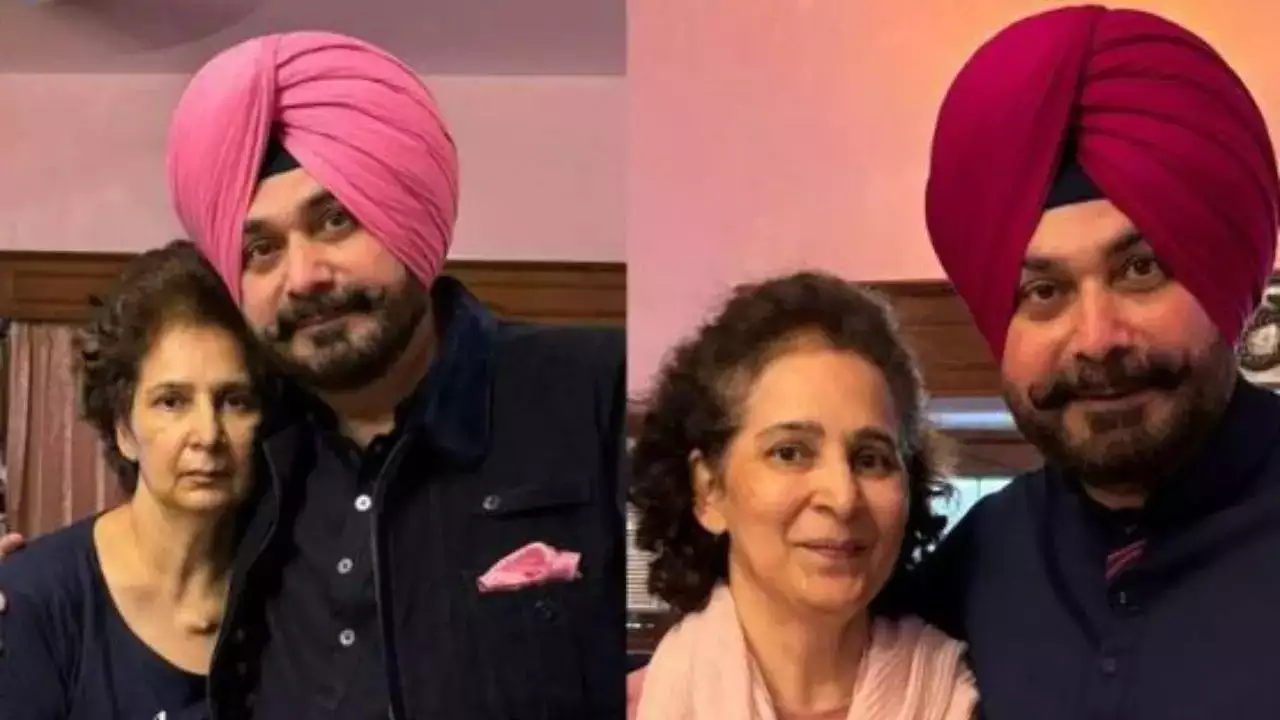
Sidhu announced his wife is now clinically free from cancer and overcame stage 4 despite being given only a 3 chance of survival
Navajot Singh Sidhu Wife Cancer: Experts have rejected Navjot Singh Sidhu’s claims that following a particular diet helped his wife beat stage 4 cancer. In a news conference, Sidhu announced his wife and former MLA Navjot Kaur Sidhu, is now clinically free from cancer and overcame the deadly disease at stage 4, despite being given only a 3 per cent chance of survival.
“This could form part of the supportive treatment in managing stage IV cancer. However, there is no large-scale study that suggests herbal medicine and diet alone can control metastatic cancer. Any findings in this area are typically based on his subjective results, such as those from individual experiences,” Dr. Sushama Sumeet, BAMS, MD, Ayurveda Physician and Senior Research Fellow at ICTRC Pune Integrated Cancer Treatment & Research Centre, told Times Now.
Dr. Sumeet said since everyone has a different body constitution, anti-inflammatory foods may not be effective at all stages of cancer. “Furthermore, the specific diet and anti-cancer, anti-inflammatory foods recommended in such cases may not necessarily be effective for other patients, as each patient differs in disease stage, body constitution, physical and mental strength, and other factors,” she added.
Meanwhile, Dr. Cyric Abbey Philips, also known as Liver Doc, said there is "no evidence that any specific diet, herb or Ayurvedic balderdash can prevent, control or cure cancer.”
Taking to X, he wrote, "Doctors always give the worst prognosis to prepare and sensitise patients and families. That does not mean that they have let go. Doctors always do their best to help them heal. This is exactly what all the doctors you spoke to told you."
What was Navjot Kaur’s diet?
According to Sidhu, he followed a strict diet routine for her treatment, which helped her heal to a large extent. Navjot Kaur’s daily meals included drinking lemon water along with eating raw turmeric and apple cider vinegar. She was given consuming neem leaves and tulsi. Sour fruits and juices made from pumpkin, pomegranate, carrot, amla, beetroot, and walnuts were also an integral part of her diet.
“If you give a gap in eating, cut off sugar, and cut out carb cancer cells die,” Sidhu claimed in the news conference.
What is stage 4 cancer?
According to doctors, stage 4 is the most severe stage of cancer, with the highest risk of mortality. However, many factors affect stage 4 cancer survival rates, including the type of cancer.
Doctors say stage 4 cancer usually cannot be cured because it spreads throughout the body by the time it gets diagnosed. It is unlikely the cancer can be completely removed. A person may not experience any symptoms of stage 4 cancer. However, if symptoms are present, they differ depending on where the cancer has spread. For example:
Spread to the bone
You may experience fractures and bone pain
Spread to the brain
Develops dizziness, seizures, and headaches
Spread to the lung
You may develop shortness of breath
Spread to the liver
Cancer that has spread to the liver can cause abdominal swelling or jaundice.
Is stage 4 cancer always terminal?
Doctors say stage 4 cancer is not always terminal; however, it is usually advanced and requires more aggressive treatment. Terminal cancer refers to cancer that is not curable and eventually results in death. Some may refer to it as end-stage cancer.
If a doctor determines that the cancer is terminal, it means that it is so advanced that treatment options focus on controlling rather than curing the cancer. More severe cancers are more likely to be terminal. Even though predicting life expectancy is very difficult, doctors say they consider many variables like the type of cancer, its location, and whether the person has any other underlying health conditions.
Relative survival rates convey the likelihood of living for a certain period of time after a doctor diagnoses cancer compared to others without the condition.
Cancer and lifestyle
Experts have always been vocal about bringing about positive changes in your lifestyle both during and after treatment.
"It has been demonstrated that moderate or even regular exercise helps combat fatigue, contributes positively to psychological health, and may even lower the risk of cancer recurrence and death, especially in cases of breast, colon, and prostate cancers," said Dr. Tushar Patil, Senior Consultant - Medical Oncologist, Sahyadri Super Speciality Hospital.
According to Dr. Patil, other lifestyle factors that help manage stress include meditation, good sleeping patterns and yoga, as all of these promote a better quality of life and enhance treatment response by improving the immune system and decreasing inflammation.
Get Latest News Live on Times Now along with Breaking News and Top Headlines from Health and around the world.
